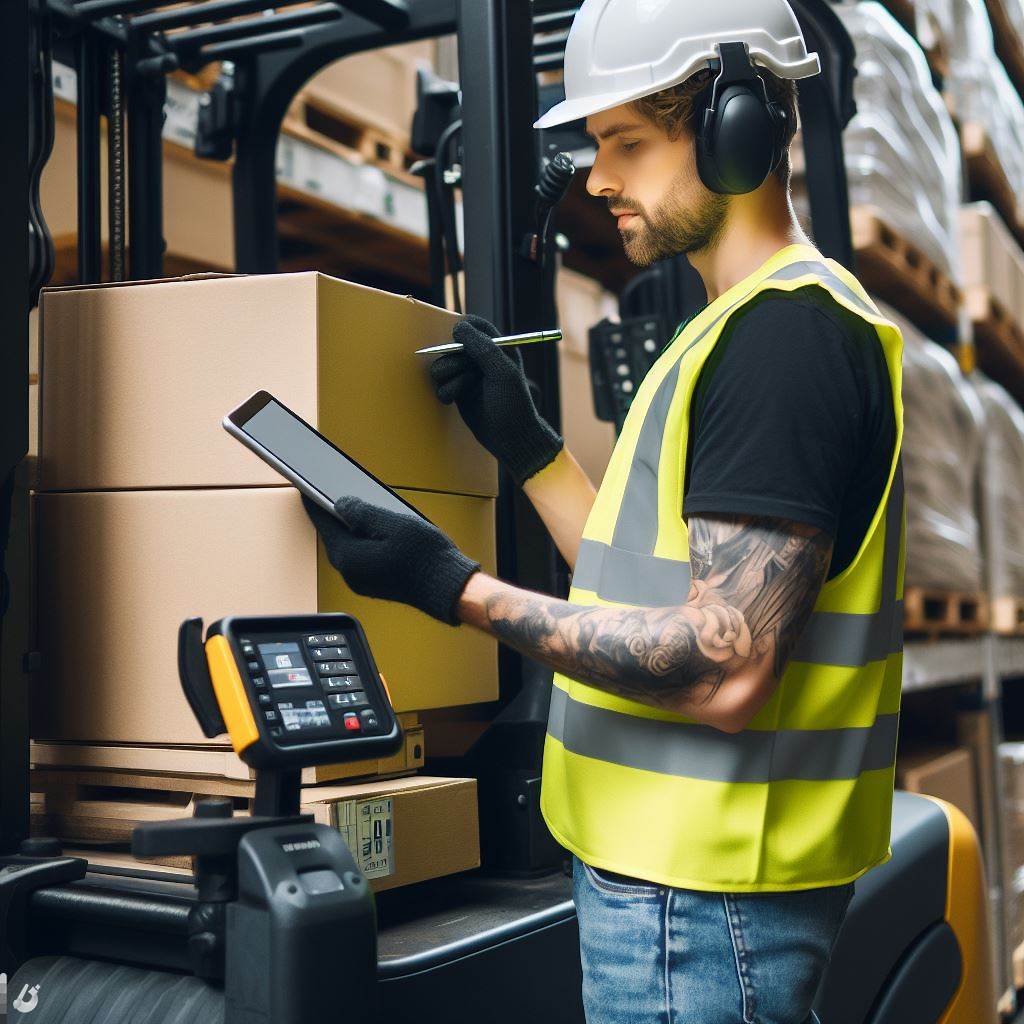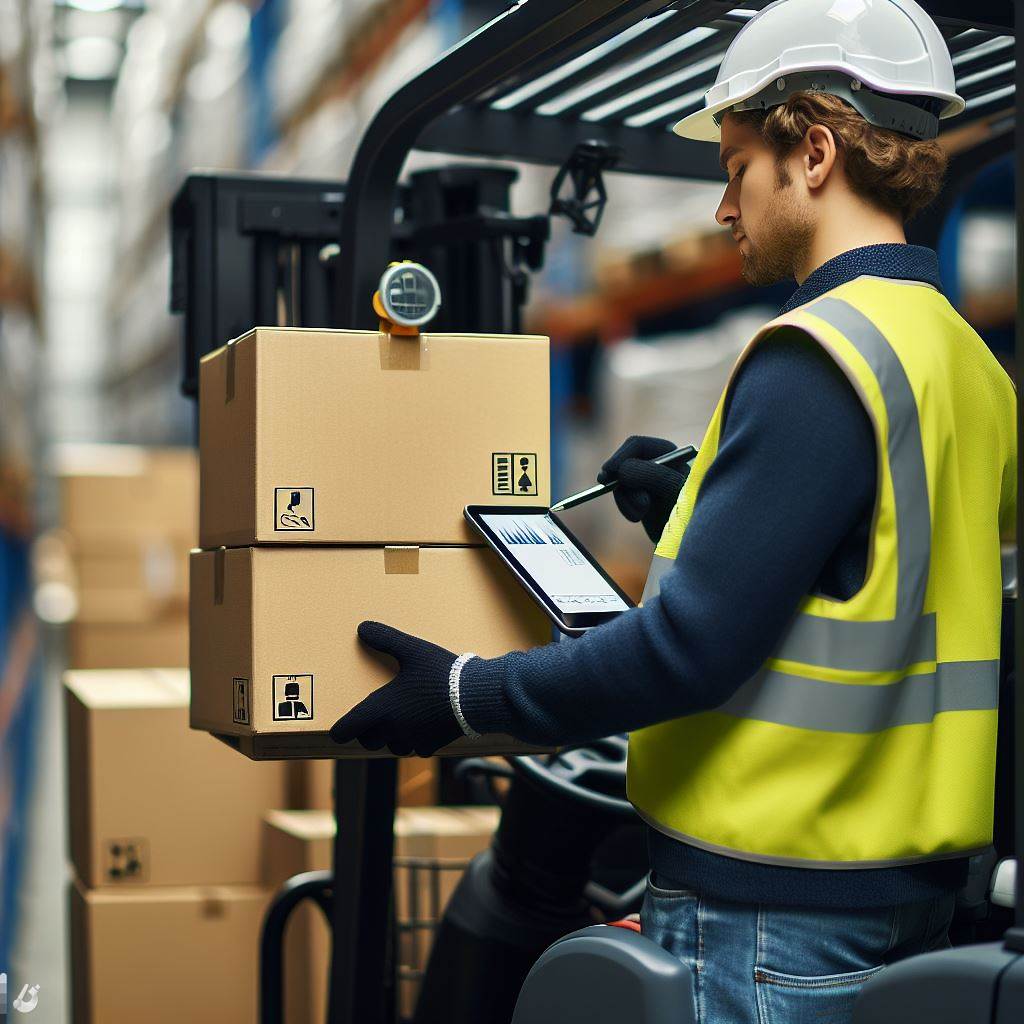Introduction
Eco-friendly practices in UK logistics play a crucial role in minimizing environmental impact, reducing carbon emissions, and promoting sustainability.
Implementing green practices is essential to combat environmental challenges, such as climate change and pollution.
It also enhances corporate social responsibility and improves brand reputation.
The UK logistics industry is a significant contributor to greenhouse gas emissions and air pollution.
With increasing consumer demand, there is a pressing need for sustainable solutions and eco-friendly practices.
Logistics companies are embracing alternative fuels, such as electric vehicles and biodiesel, to reduce carbon emissions.
They are also striving to optimize delivery routes to minimize fuel consumption and congestion.
The use of advanced technologies like GPS tracking and route planning software helps to streamline operations, enhance efficiency, and reduce wastage.
Warehouse and distribution centers are adopting eco-friendly practices like energy-efficient lighting, recycling programs, and sustainable packaging materials.
Collaborative initiatives and partnerships between logistics companies, government bodies, and environmental organizations are shaping the industry towards a greener future.
Eco-friendly practices in UK logistics are vital for minimizing environmental impact, improving sustainability, and meeting the demands of a conscious consumer market.
By adopting green initiatives, the industry can drive positive change and contribute towards a greener and cleaner future.
Definition and Benefits of Eco-Friendly Practices in Logistics
Definition of eco-friendly practices in logistics and their relevance in the UK
Eco-friendly practices in logistics refer to the implementation of measures that reduce the environmental impact of transporting goods and materials.
In the UK, these practices play a crucial role in addressing sustainability concerns and meeting carbon reduction targets.
Benefits of Adopting Eco-Friendly Practices
Environmental Impact Reduction
- Use of low-emission vehicles and fuel-efficient technologies contributes to a significant reduction in greenhouse gas emissions.
- Optimization of transport routes and improved load planning minimize fuel consumption and air pollution.
- Proper waste management and recycling practices reduce landfill waste and promote resource conservation.
Cost Savings
- Energy-efficient vehicles and equipment consume less fuel, resulting in lower operating costs for logistics companies.
- Implementing sustainable packaging solutions reduces material wastage and lowers packaging expenses.
- By adopting energy-saving practices in warehouses and distribution centers, companies can reduce electricity consumption and cut utility bills.
Enhanced Brand Reputation
- Organizations that prioritize eco-friendly practices in their logistics operations gain a positive reputation among consumers and stakeholders.
- Being environmentally conscious improves brand image, attracting environmentally conscious customers.
- Companies committed to sustainability are often preferred by clients and partners, reinforcing business relationships.
With the growing importance of sustainability, numerous UK logistics companies have embraced eco-friendly practices.
Personalized UK Career Consulting
Receive tailored career guidance designed just for you. Get actionable steps and expert support to boost your career in 1-3 days. Take control of your career now.
Get StartedRelevance of Eco-Friendly Practices in the UK
The UK is committed to reducing its carbon footprint and addressing climate change through various initiatives and targets.
Legal Requirements
- The UK government has imposed regulations and standards to ensure logistics companies adhere to eco-friendly practices.
- These regulations encourage the adoption of cleaner technologies and the reduction of emissions.
Climate Change Commitments
- The UK is a signatory to international agreements like the Paris Agreement, which emphasizes the importance of reducing greenhouse gas emissions.
- Meeting these commitments requires a substantial shift towards sustainable logistics practices.
Corporate Social Responsibility
- Logistics companies recognize the importance of environmental sustainability in fulfilling their corporate social responsibility.
- By adopting eco-friendly practices, they contribute to the overall well-being of society.
Eco-friendly practices in UK logistics offer numerous benefits, including reduced environmental impact, cost savings, and enhanced brand reputation.
These practices align with the UK’s commitment to sustainability and help address various environmental challenges.
By embracing eco-friendly practices, logistics companies can contribute to a greener and more sustainable future.
Read: Logistic Coordinator: UK Vs Global Roles
Sustainable Transportation in Logistics
In recent years, there has been a growing awareness and concern for the environment and the impact of human activities on the planet.
This has led to an increased focus on eco-friendly practices in various industries, including logistics in the UK.
Discussion of alternative fuel options
Sustainable transportation plays a vital role in reducing carbon emissions and minimizing environmental damage caused by logistics operations.
To achieve this, alternative fuel options have been introduced and adopted by logistics companies.
Electric vehicles
One of the most prominent alternative fuel options is electric vehicles (EVs).
These vehicles are powered by electricity, which significantly reduces carbon emissions compared to traditional fuel-powered vehicles.
EVs have gained popularity in the logistics sector due to their long-term cost savings and positive environmental impact.
Biofuels
Biofuels are another alternative fuel option that has gained traction in the logistics industry.
These fuels are derived from renewable sources such as plants or waste materials, making them environmentally friendly and sustainable.
Your Dream Job Starts with a Perfect CV
Get a tailored CV and cover letter that captures your unique strengths and stands out in your industry. Let us help you make an unforgettable first impression.
Get StartedBiofuels offer a viable solution to reduce greenhouse gas emissions and dependence on fossil fuels.
Hydrogen-powered vehicles
Hydrogen-powered vehicles have also emerged as a sustainable transportation option.
These vehicles use hydrogen fuel cells to produce electricity, emitting only water vapor as a byproduct.
Hydrogen fuel is renewable and can be produced through various methods, including electrolysis of water and biomass conversion.
Introduction of logistics companies adapting sustainable transportation
Collaboration with electric vehicle manufacturers
Logistics companies in the UK have been proactive in adapting sustainable transportation practices.
They have collaborated with electric vehicle manufacturers to incorporate EVs into their fleets.
This partnership ensures access to reliable and efficient electric vehicles that meet their specific logistic requirements.
Integration of alternative fueling stations
Integration of alternative fueling stations is another aspect of sustainable transportation infrastructure.
Logistics companies have actively worked towards establishing charging stations for electric vehicles and fueling stations for biofuels and hydrogen-powered vehicles.
Case studies showcasing successful implementations
Several case studies have showcased successful implementations of sustainable transportation practices by logistics companies.
These studies highlight the positive outcomes of adopting eco-friendly approaches, such as reduced emissions, lower operational costs, and improved brand reputation.
In essence, the importance of sustainable transportation in logistics cannot be overstated.
The adoption of alternative fuel options, such as electric vehicles, biofuels, and hydrogen-powered vehicles, is crucial in reducing carbon emissions and minimizing environmental impact.
Logistics companies in the UK have taken proactive steps by collaborating with EV manufacturers and integrating alternative fueling stations.
Optimize Your LinkedIn for Success
Boost your LinkedIn profile with a professional bio, keyword-rich headline, and strategic recommendations that attract recruiters. Stand out from the crowd and get noticed.
Optimize NowThe success stories from these initiatives serve as inspiration for further implementation of eco-friendly practices in the logistics industry.
Read: Train Operator Shift Patterns in the UK

Green Warehousing and Packaging
Eco-friendly practices in UK logistics are gaining traction as businesses recognize the need to reduce their carbon footprint.
Green warehousing and packaging play a crucial role in achieving sustainability goals.
Explanation of sustainable warehousing practices
Sustainable warehousing practices are focused on minimizing the environmental impact of storage facilities.
Energy-efficient lighting
Energy-efficient lighting is a key aspect of green warehousing, as it reduces electricity consumption and lowers greenhouse gas emissions.
By using LED lights, warehouses can significantly decrease energy usage and cut down on costs.
Renewable energy sources
Another sustainable warehousing practice is utilizing renewable energy sources such as solar panels or wind turbines.
This allows warehouses to generate their own clean energy, reducing reliance on fossil fuels and decreasing carbon emissions.
Waste management strategies
Waste management strategies are essential in minimizing the environmental impact of logistics operations.
Warehouses can implement recycling programs and separate waste streams to ensure proper disposal.
This reduces landfill waste and promotes a circular economy.
Innovative packaging solutions
Innovative packaging solutions are crucial in reducing the carbon footprint of logistics operations.
Use of recycled materials
The use of recycled materials in packaging helps conserve resources and reduce waste.
By choosing materials with a lower environmental impact, such as bioplastics or recycled paper, businesses can contribute to a more sustainable supply chain.
Reducing unnecessary packaging
Reducing unnecessary packaging is also a key focus for eco-friendly logistics.
Excessive packaging leads to waste and adds unnecessary weight to shipments, increasing fuel consumption and emissions during transportation.
By optimizing packaging sizes and using innovative designs, businesses can reduce material usage and minimize their environmental impact.
Development of biodegradable or compostable packaging materials
The development of biodegradable or compostable packaging materials is a significant step towards a more sustainable logistics industry.
Biodegradable materials can break down naturally, reducing pollution and waste in landfills.
Compostable materials can be converted into nutrient-rich soil, contributing to a circular economy.
In general, green warehousing and packaging practices are vital for creating a more sustainable logistics industry in the UK.
Energy-efficient lighting, renewable energy sources, and waste management strategies all contribute to reducing the environmental impact of warehouses.
Innovative packaging solutions, such as recycled materials and biodegradable options, further support eco-friendly practices.
By incorporating these measures, businesses can play their part in building a greener future for logistics.
Read: Health Tips for Long-Haul Bus Drivers
Implementation of Technology for Efficiency
In order to achieve eco-friendly practices in UK logistics, the implementation of technology is crucial for efficiency.
Smart logistics and route optimization
Smart logistics and route optimization play a significant role in reducing environmental impact.
- Utilization of intelligent transportation systems helps minimize fuel consumption and emissions
. - Data analysis enables the identification of efficient delivery routes, reducing unnecessary mileage.
Tracking and monitoring systems
Tracking and monitoring systems contribute to environmentally friendly practices.
- Real-time visibility of goods allows for better coordination and fewer delays, reducing fuel usage.
- With the use of tracking systems, theft and losses can be minimized, improving overall sustainability.
Adoption of cloud-based systems
The adoption of cloud-based systems provides numerous benefits for eco-friendly logistics.
Reduction of paperwork not only saves resources but also streamlines operational processes.
The implementation of technology in logistics is key to achieving eco-friendly practices.
Collaboration and Partnerships for Sustainability
Importance of collaboration between logistics companies and suppliers
In the pursuit of eco-friendly practices in the UK logistics industry, collaboration and partnerships are essential.
The importance of collaboration between logistics companies and suppliers cannot be understated.
By working together, they can achieve greater sustainability.
Formation of sustainable alliances and partnerships
One key aspect of collaboration is the formation of sustainable alliances and partnerships.
These partnerships allow for the sharing of resources, knowledge, and expertise to drive sustainable initiatives forward.
Examples of successful collaborations within the UK logistics industry
Several successful collaborations within the UK logistics industry serve as shining examples of what can be achieved when different stakeholders work together towards a common goal.
Logistics companies and local authorities
One such example is the collaboration between logistics companies and local authorities.
By joining forces, they have been able to implement efficient waste management systems that minimize environmental impact.
Logistics companies and manufacturers
Another successful partnership is between logistics companies and manufacturers.
By working closely together, they have been able to develop innovative packaging solutions that reduce waste and increase recyclability.
Collaboration has also been key in the adoption of alternative fuel sources in logistics operations.
Logistics companies have partnered with energy suppliers to develop and implement greener fuel options, such as electric or hydrogen-powered vehicles.
Partnerships between logistics companies and technology providers have led to the development of advanced systems for route optimization and vehicle tracking.
These advancements help reduce fuel consumption and lower emissions.
Another area where collaboration has shown great results is in the implementation of shared transportation initiatives.
Logistics companies have joined forces to establish shared distribution centers, which reduce the number of vehicles on the road and improve overall efficiency.
Collaborations have played a significant role in the implementation of sustainable supply chain practices.
By working closely with suppliers, logistics companies have been able to encourage and support the adoption of environmentally-friendly processes and materials across the entire supply chain.
It is clear that collaboration and partnerships are crucial for promoting sustainability in the UK logistics industry.
By pooling resources, sharing expertise, and working towards mutually beneficial goals, the industry can continue to drive forward innovative and eco-friendly practices.
As the importance of sustainability continues to grow, it is essential for logistics companies to prioritize collaboration and form strong partnerships.
They can lead the way in creating a more environmentally-friendly future for the industry.
Read: Navigating UK’s Bus Operator Licenses
Conclusion
Eco-friendly practices play a significant role in UK logistics.
They not only contribute to reducing carbon emissions but also enhance operational efficiency.
It is imperative for businesses to embrace sustainability in their operations to minimize their environmental impact and improve their overall reputation.
By adopting greener practices such as using electric vehicles, optimizing transport routes, and reducing packaging waste, companies can contribute to a greener future for the logistics industry in the UK.
It is crucial for businesses to recognize the benefits of eco-friendly practices and take proactive steps to implement them.
By doing so, they can not only reduce their environmental footprint but also improve their bottom line.
The future of eco-friendly practices in UK logistics is promising, with more businesses realizing the importance of sustainability and making efforts to implement greener practices in their operations.
As the industry continues to evolve and technologies advance, it is expected that eco-friendly practices will become the norm rather than the exception in UK logistics.
The time to act is now, and businesses should seize the opportunity to contribute to a more sustainable and environmentally friendly future.
Let us work together towards a greener and more efficient logistics industry in the UK.
[E-Book for Sale]
500 Cutting-Edge Tech Startup Ideas for 2024 & 2025: Innovate, Create, Dominate
$19.99 • 500 Tech Startup Ideas • 62 pages
You will get inspired with 500 innovative tech startup ideas for 2024 and 2025, complete with concise descriptions to help you kickstart your entrepreneurial journey in AI, Blockchain, IoT, Fintech, and AR/VR.




